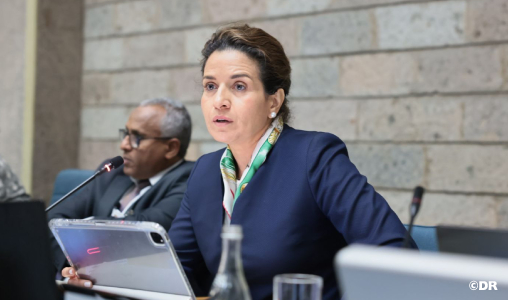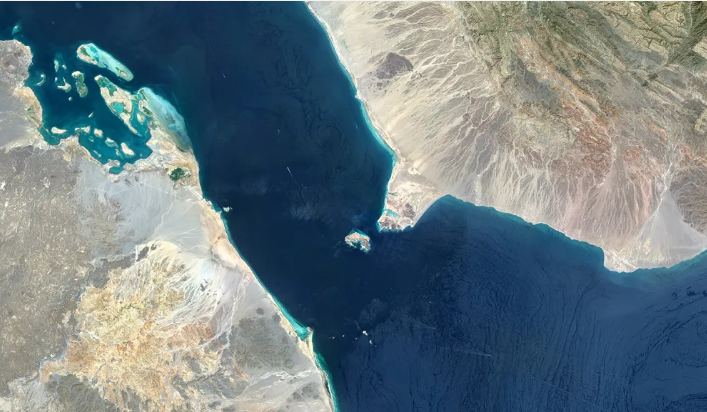Preamble
We, the undersigned, recognizing that the Gulf of Guinea is one of the world’s richest marine ecosystems—vital for livelihoods, food security, and economic development—commend the Government of Cameroon and the President of the United Nations General Assembly for convening this high-level conference. This conference provides an opportunity to strengthen regional cooperation and accelerate the implementation of global frameworks, including the Kunming-Montreal Global Biodiversity Framework (GBF), the United Nations Convention on the Law of the Sea (UNCLOS), the 2030 Agenda, and the Paris Agreement.
We reaffirm the Yaoundé Code of Conduct (2013) and associated regional security frameworks, and we welcome Cameroon’s endorsement of the Global Charter for Transparency in Fisheries. We recognize the vital role of artisanal fisheries and blue carbon ecosystems, and support their integration into national climate and biodiversity strategies.
This Declaration aligns with the African Union’s Agenda 2063, the 2050 Africa’s Integrated Maritime Strategy, and the African Blue Economy Strategy, and recalls key regional legal instruments, including those of the ECCAS, ECOWAS, COPAX, and the Gulf of Guinea Commission (GGC).
Challenges and Opportunities
We acknowledge the strong political momentum toward the goal of 100% sustainable ocean management by 2030. However, we remain concerned about overfishing, ecosystem degradation, piracy, illegal, unreported and unregulated (IUU) fishing, and inadequate financing. We call for enhanced regional coordination, transparency, and the integration of science and traditional knowledge into ocean governance, along with greater inclusion of women, youth, and coastal communities.
We recognize that Sustainable Ocean Plans (SOPs) are essential instruments for integrating ocean-related priorities into national development agendas. They complement the GBF, including Target 3 to effectively conserve and manage at least 30% of coastal and marine areas by 2030. Through SOPs, countries can align biodiversity protection with climate action, food security, and sustainable economic development. In this regard, we welcome the emergence of the 100% Alliance—a growing coalition of countries committed to sustainably managing 100% of their ocean area—as a political and technical support mechanism to help nations operationalize SOPs and progress toward the 30×30 target.
We further recognize that building a resilient and equitable ocean economy requires stronger marine resource governance that respects the rights of small-scale fishers and promotes food security. We emphasize the need to protect inshore exclusion zones—present in most Gulf of Guinea coastal states—from unsustainable distant-water fishing practices. Stronger enforcement of these zones, along with more transparent licensing and monitoring regimes, is essential to ensure fair access to marine resources, reduce user conflicts, and safeguard coastal livelihoods. We also support the development of sustainable aquaculture practices using species adapted to West African ecosystems to enhance food security and diversify livelihoods.
We stress the importance of equity and inclusivity as guiding principles of ocean governance. The voices and knowledge of all stakeholders—including artisanal fishers, women, youth, and local communities—must be meaningfully integrated into the design, implementation, and monitoring of policies. Only through transparent and participatory decision-making processes can we ensure that no one is left behind and that the benefits of a sustainable ocean economy are equitably shared between current and future generations.
We propose that the Gulf of Guinea Commission (GGC) establish a monitoring mechanism to track progress under this Declaration, and we strongly encourage international support to advance its implementation. We further encourage the creation of a regional working group to coordinate implementation efforts, monitor progress, and identify opportunities for capacity building, technical assistance, and knowledge exchange.
Commitments
Sustainable Ocean Management and SOPs
We commit to developing and implementing Sustainable Ocean Plans (SOPs) to guide the sustainable use, protection, and restoration of marine and coastal ecosystems and to manage 100% of ocean areas under national jurisdiction by 2030. SOPs should align with National Biodiversity Strategies and Action Plans (NBSAPs), Nationally Determined Contributions (NDCs), blue economy roadmaps, and national development plans.
Combating IUU Fishing
We commit to strengthening monitoring, enforcement, port state measures, and data sharing to combat IUU fishing. We support enhanced cooperation with international partners to close governance gaps.
Maritime Security
We reaffirm our support for the Yaoundé architecture for maritime security to combat piracy, trafficking, and environmental crimes, including in areas beyond national jurisdiction.
Transparency and Governance
We support the Global Charter for Transparency in Fisheries and commit to:
- Establishing digital vessel registries
- Publishing licensing and quota data
- Promoting traceability across all fleets
- Enhancing regional data sharing
- Disclosing vessel ownership
Financing, Innovation, and Inclusion
We call for increased sustainable financing, regional investment platforms, and public-private partnerships. Implementation strategies must prioritize gender equality, youth empowerment, indigenous peoples, and local communities.
Capacity Building and Leadership
We support the establishment of a Regional Centre of Excellence in Yaoundé for training, dialogue, and innovation in sustainable blue economy practices. We invite partners, universities, and development banks to support this initiative.
Ocean Observation and Data Sharing
We commit to improving ocean observation systems and open-access data to inform marine planning, early warning, and law enforcement.
We invite the United Nations and the international community to support these priorities and propose that the GGC lead consultations on developing a model law for a sustainable blue economy. We call on all stakeholders to support the vision of 100% sustainable ocean management by 2030.
Adopted in Yaoundé, 10 July 2025




